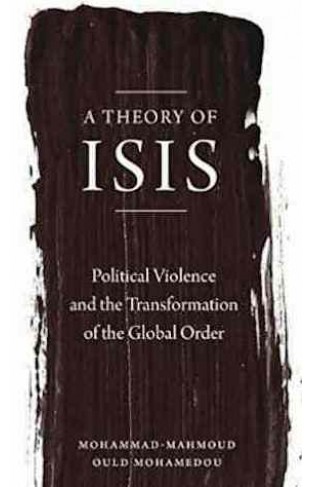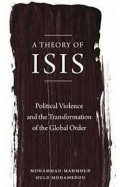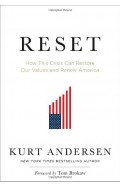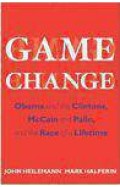- Home
- Categories
- Non Fiction
- Politics & Current Affairs
- A Theory of ISIS: Political Violence and the Transformation of the Global Order
A Theory of ISIS: Political Violence and the Transformation of the Global Order
By: Mohammad-Mahmoud Ould Mohamedou
-
Rs 4,546.75
- Rs 6,995.00
- 35%
You save Rs 2,448.25.
Due to constant currency fluctuation, prices are subject to change with or without notice.
The Islamic State of Iraq and Syria has been the subject of intense scrutiny in the West. Considered by many to be the most dangerous terrorist organisation in the world, it has become shrouded in numerous myths and narratives, many emanating from the US, which often fail to grasp its true nature.Against these narratives, Mohammad-Mahmoud Ould Mohamedou presents a bold new theory of ISIS. By tracing its genealogy and documenting its evolution in Iraq and Syria, he argues that ISIS has transcended Osama Bin Laden's original project of Al Qaeda, mutating into an unprecedented hybrid form that distils postcolonial violence, postmodernity and the emerging post-globalisation international order.This book analyses ISIS from a social sciences perspective and unpacks its dynamics by looking beyond superficial questions such as its terrorist nature and religious rhetoric. It transforms our understanding of ISIS and its profound impact on the very nature of contemporary political violence.
| Book | |
| What's in the Box? | 1 x A Theory of ISIS: Political Violence and the Transformation of the Global Order |
The Islamic State of Iraq and Syria has been the subject of intense scrutiny in the West. Considered by many to be the most dangerous terrorist organisation in the world, it has become shrouded in numerous myths and narratives, many emanating from the US, which often fail to grasp its true nature.Against these narratives, Mohammad-Mahmoud Ould Mohamedou presents a bold new theory of ISIS. By tracing its genealogy and documenting its evolution in Iraq and Syria, he argues that ISIS has transcended Osama Bin Laden's original project of Al Qaeda, mutating into an unprecedented hybrid form that distils postcolonial violence, postmodernity and the emerging post-globalisation international order.This book analyses ISIS from a social sciences perspective and unpacks its dynamics by looking beyond superficial questions such as its terrorist nature and religious rhetoric. It transforms our understanding of ISIS and its profound impact on the very nature of contemporary political violence.
A Theory of ISIS: Political Violence and the Transformation of the Global Order
By: Mohammad-Mahmoud Ould Mohamedou
Rs 4,546.75 Rs 6,995.00 Ex Tax :Rs 4,546.75
Zubin Mehta: A Musical Journey (An Authorized Biography)
By: VOID - Bakhtiar K. Dadabhoy
Rs 472.50 Rs 1,050.00 Ex Tax :Rs 472.50
Furiously Happy: A Funny Book about Horrible Things
By: Jenny Lawson
Rs 1,751.75 Rs 2,695.00 Ex Tax :Rs 1,751.75
Myths Illusions and Peace: Finding a New Direction for America in the Middle East
By: Dennis Ross
Rs 985.50 Rs 1,095.00 Ex Tax :Rs 985.50
The Origins of Political Order From Prehuman Times to the French RevolutioN
By: Francis Fukuyama
Rs 3,505.50 Rs 3,895.00 Ex Tax :Rs 3,505.50
Reset: How This Crisis Can Restore Our Values and Renew America
By: Kurt Andersen
Rs 450.00 Rs 500.00 Ex Tax :Rs 450.00
How To Win A Cosmic War God Globalization And The End Of War
By: Reza Aslan
Rs 625.50 Rs 695.00 Ex Tax :Rs 625.50
Game Change Obama And The Clintons McCain And Palin And The Race Of A Lifetime
By: John Heilemann
Rs 715.50 Rs 795.00 Ex Tax :Rs 715.50
Made to Stick: Why Some Ideas Take Hold and Others Come Unstuck
By: Chip Heath & Dan Heath
Rs 2,695.50 Rs 2,995.00 Ex Tax :Rs 2,695.50
Furiously Happy: A Funny Book about Horrible Things
By: Jenny Lawson
Rs 1,751.75 Rs 2,695.00 Ex Tax :Rs 1,751.75
No recently viewed books available at the moment.
Zubin Mehta: A Musical Journey (An Authorized Biography)
By: VOID - Bakhtiar K. Dadabhoy
Rs 472.50 Rs 1,050.00 Ex Tax :Rs 472.50
A Theory of ISIS: Political Violence and the Transformation of the Global Order
By: Mohammad-Mahmoud Ould Mohamedou
Rs 4,546.75 Rs 6,995.00 Ex Tax :Rs 4,546.75
Furiously Happy: A Funny Book about Horrible Things
By: Jenny Lawson
Rs 1,751.75 Rs 2,695.00 Ex Tax :Rs 1,751.75














-120x187.jpg?q6)








-120x187.jpg?q6)






